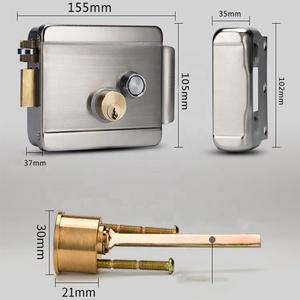Types of Intercom Systems Phone
Intercom systems phones have evolved significantly to cater to various communication needs across different environments. These systems come in several types, each designed to provide distinct functionalities that suit specific scenarios.
- Wired Intercom Systems: These intercoms use physical wiring to connect the units, ensuring stable and reliable communication. Ideal for large buildings and offices.
- Wireless Intercom Systems: These are flexible and easier to install; perfect for homes or temporary setups. Wireless systems use radio frequency to transmit audio signals.
- Video Intercom Systems: Incorporating video functionality, these systems allow users to see who is at the door before letting them in. A safer option for residential complexes.
- IP Intercom Systems: Utilizing internet protocol, this advanced system offers features like remote access and integration with smartphones, ideal for modern enterprises.
Function and Feature of Intercom Systems Phone
The intercom systems phone serves numerous purposes, focusing on enhancing communication efficiency, security, and convenience in various settings.
- Instant Communication: Provides real-time voice communication between different units, eliminating the need for physical movement.
- Secure Access Control: Many systems offer features such as a lock release option, allowing users to control who enters their premises.
- Integrative Capabilities: Modern intercom systems can be integrated with other home automation systems, including security cameras and smart devices.
- Multi-User Capability: Allowing several users to communicate simultaneously enhances collaboration in multifamily homes or large organizations.
Applications of Intercom Systems Phone
Intercom systems phones find their place in various sectors, adapting seamlessly to the specific requirements of each environment.
- Residential Areas: Homeowners utilize intercoms for communication between rooms or for verifying visitors at the entrance.
- Corporate Offices: Facilitating internal communication among staff, intercoms enhance workflow and ensure prompt responses.
- Educational Institutions: Used for communication between staff rooms, classrooms, and administration, enhancing safety and coordination during emergencies.
- Healthcare Facilities: Hospitals and clinics employ intercom systems for efficient communication among departments, critical during patient care.
Advantages of Using Intercom Systems Phone
The adoption of intercom systems phones presents numerous benefits that appeal to both residential and commercial users.
- Enhanced Communication: Provides quick and easy communication, which is crucial in critical situations.
- Cost-Effective: Reduces the need for extensive wiring and phone lines, especially with wireless options, leading to cost savings.
- Improved Security: Helps monitor access points and communicate with visitors without having to physically greet them, enhancing safety.
- User-Friendly: Intercom systems are generally simple to use and require minimal technical knowledge, making them accessible to all age groups.













































